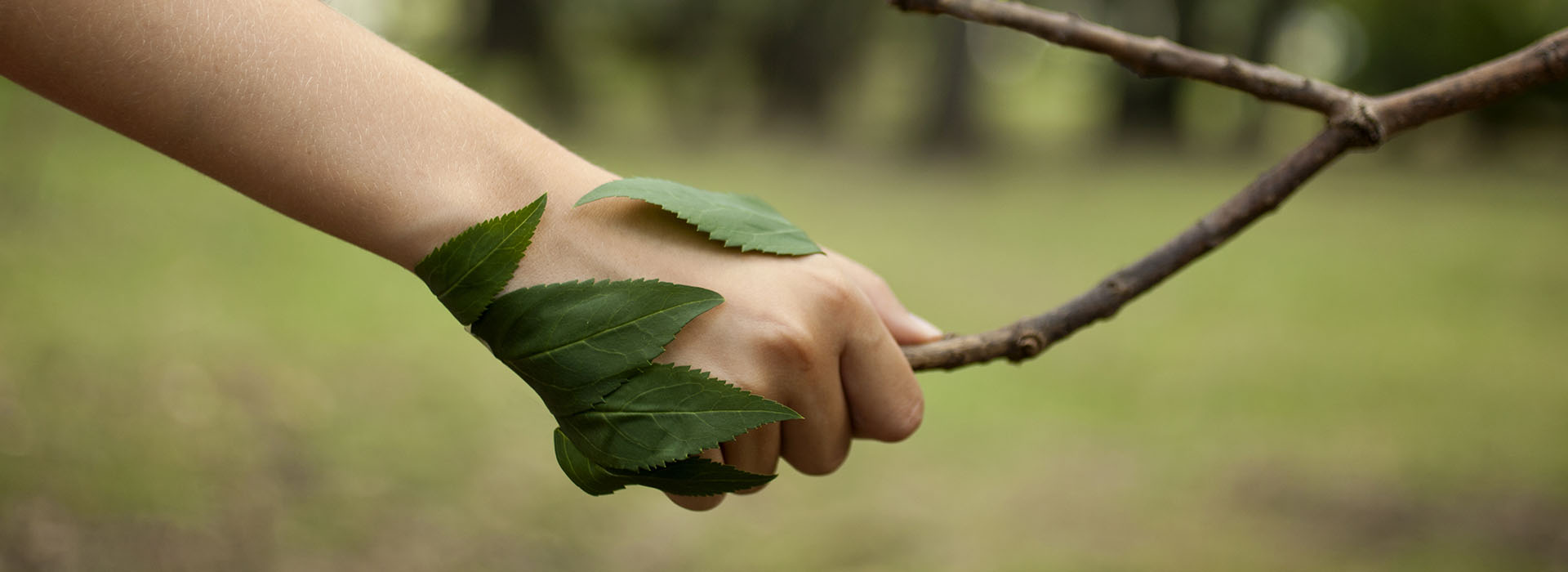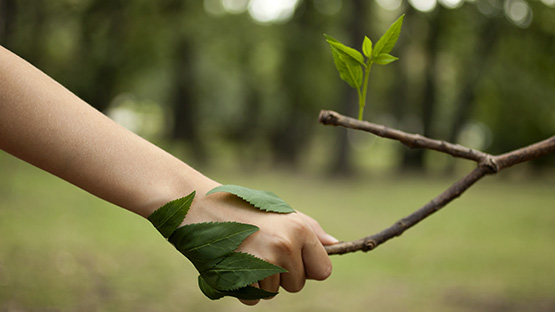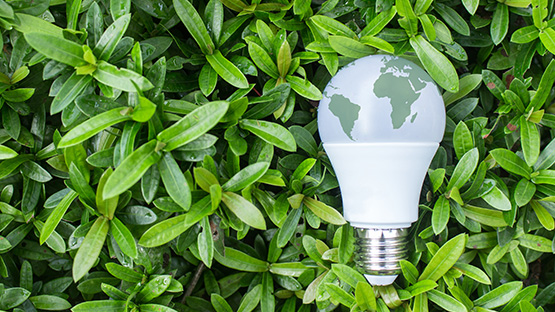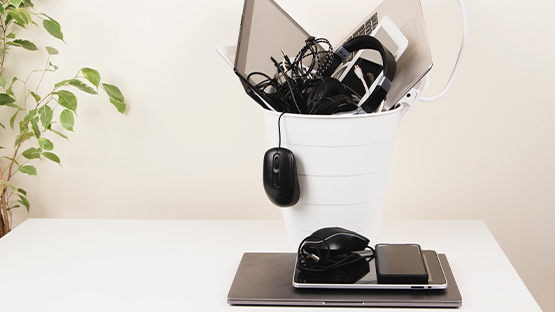How to be eco-friendly every day - the key principles
Ecology

2 February 2023
How to be eco-friendly in everyday life? This is a question asked by people who care about the state of the environment. It has not been known for a long time that human actions have a major impact on the state of the planet. This is precisely why it is worth knowing the most important principles that help you organise your actions. For information on how to be green and what this actually does for the planet, see the article below. Believe that it only takes a little!
What does it mean to be eco?
There has been a lot of talk in recent years about environmentalism, caring for the environment and being eco. Not everyone is really aware of what the latter term means. Being eco is about living in a way that does as little harm to the planet as possible and helps it as much as possible. It involves a high degree of climate awareness, i.e. an awareness of what changes are taking place in the world around us and how much human activity is affecting it. Being eco means living green every day and implementing positive habits every day. It is worth realising that the environment is affected by both large and smaller activities. Whether you can afford an electric car or just segregate your rubbish - all green behaviour is important.
How to be eco and where to start?
Many people who wonder how to be eco think it is difficult and requires many sacrifices. Fortunately, this is not true, and especially not in this day and age. The best way to start your eco-living adventure is to make small changes in your daily routine. The first step could be to save - electricity, water or food. It is a good idea to replace light bulbs with energy-saving bulbs, to turn off lights when leaving rooms, to turn off the water when brushing your teeth or shaving and not to buy too much food. Water can also be saved by collecting rainwater for watering plants, taking quick showers instead of baths, doing laundry only with a full drum or fitting a flush toilet with a regulated flush. Some people place a bowl under the shower into which the bath water falls and use this to flush the toilet later.
How to be more eco-friendly beyond saving money? It is worth minimising your plastic consumption, for example by drinking tap water, using reusable food packaging instead of paper or pouches, or using metal drinking tubes. On a daily basis, one can give up driving a car in favour of cycling or public transport. This has a very big impact on the amount of greenhouse gases emitted into the atmosphere, which contribute to global warming. In many places, tap water is drinkable even without filtration, but if you prefer to purify it further, filter jugs or bottles that you can take with you to work or school will work well. Food is worth storing in lunch boxes and sandwiches can be wrapped up in waxwraps. In addition to metal drinking tubes, pasta tubes, for example, which are increasingly common in restaurants, are an interesting solution. It is even worth using paper straws instead of plastic.
How to be eco at home and beyond? Segregate your waste! You can make new things out of well-segregated waste, and recycling is very important in taking care of the environment. It is best to have separate bins at home for plastic, glass, waste paper or bio waste. If you have a garden, it's worth building a composter where bio waste will decompose. You also need to be a bit creative and, for example, instead of throwing away coffee grounds, you can use them to make yourself a scrub. You don't have to buy the product at the drugstore then, so you don't produce more rubbish and you don't waste money.
How to be eco-friendly when shopping - some simple tips
You already know a thing or two about how to be green every day, so it's worth mentioning shopping, which is part of everyone's everyday life. When you go for errands, it is essential to plan what you want to buy first. If you don't want to make a paper list, it's worth installing a smartphone app that allows you to plan your purchases. Then you won't produce another junk shopping list. By planning your shopping, you will avoid mindless purchases, some of whose food could go to waste. Also, remember to always bring your own shopping bag, and buy vegetables and fruit in bulk or in cloth bags. You can buy these in many supermarkets or even sew them yourself. Don't be afraid to buy unpackaged vegetables, because whether you put them in a bag or not, you still have to wash them at home.
It is often the case that peppers, vegetables or onions are packed in plastic bags, while the same vegetables are lying right next to them, but in bulk. It is then worth choosing vegetables without plastic. Also, if you know you will use something up quickly, it is better to buy slightly wrinkled and visibly older vegetables or fruit. People tend to choose the prettiest specimens, and many vegetables and fruits get thrown away later. A dish doesn't have to be made from the prettiest produce to be delicious. Don't miss crooked carrots, slightly wrinkled peppers or single, detached bananas. If you have the option, choose local grocers with organically grown produce, and if you're buying eggs, be sure to go for the zeros. Consumer decisions have a huge impact on the environment and ecology, so it is also advisable to give up eating meat and animal products, or at least limit such products. What is eco about giving up or limiting meat? Well, it turns out that animal farms have a very large impact on environmental change and water consumption. If customers reduce their purchase of such products, their production will also decrease. 
Why be eco?
You probably no longer have any doubts about how to live greener. It is worth being aware of the benefits of being green and how ways of living green affect the world around us. The first benefits can actually be seen from the very beginning of implementing green habits. Sensible shopping and saving water or energy contribute to reducing expenses. Restricting animal products and eating organic produce also promotes well-being and has a positive impact on health. In addition, the main purpose of such measures is to protect the environment. We are living in times where climate change is happening before our eyes. Weather anomalies are becoming more frequent. There are earthquakes, heavy rainfall or hurricanes. All these changes are taking place due to, among other things, human activity.
Factories, vehicles and even the chimneys on our homes emit huge amounts of greenhouse gases that end up in the atmosphere. There, in turn, they form a kind of barrier through which energy cannot pass from the Earth into the atmosphere and the greenhouse effect then takes place. It is very important to put the brakes on this phenomenon, because the future of our entire planet really depends on it. The more people who take care of the planet now, the greater the chance that future generations of children will live in a world with clean air, a supply of drinking water and without weather anomalies.
Besides these, ways to live greener are: second-hand clothes, a menstrual cup instead of sanitary pads and tampons, a broom instead of a hoover, washing on short or eco-friendly washing machine programmes, repairing appliances instead of replacing them with new ones, preparing meals from leftovers or natural cosmetics. Find out how easy it is to be eco - take care of your health and help the environment!
Czytaj również






